
Port Arthurtól Csuzimáig: Tengeri harcok az orosz-japán háborúban
¥51.01
830-ban járunk, amikor a Chazár Kaganátus határán lév? Sarkel várát fenyegetik a türkként emlegetett barbár magyar hordák.Megerit és Nekét, a két magyar nemzetség h?stettekr?l híres vezet?jét olyan barátság k?ti ?ssze, amelyet mindhalálig ?sszekovácsoltak a k?z?sen vívott portyák és csaták.Vajon kibontakozhat-e a barbár Megeri és Sarkel urának leánya, az erényes chazár Seliának a szerelme? Képes lesz-e Neké tragédiák sorozatában megt?rt szíve ismét szerelmesen dobogni? Vajon utoléri-e ?ket Kufi s Pempton, a dúsgazdag bizánci keresked? bosszúja?Ez a kalandokban, romantikában és fordulatokban gazdag t?rténet betekintést enged az ?smagyarok hétk?znapjaiba és felfogásukba szerelemr?l, bosszúról, idegenekr?l és becsületr?l.
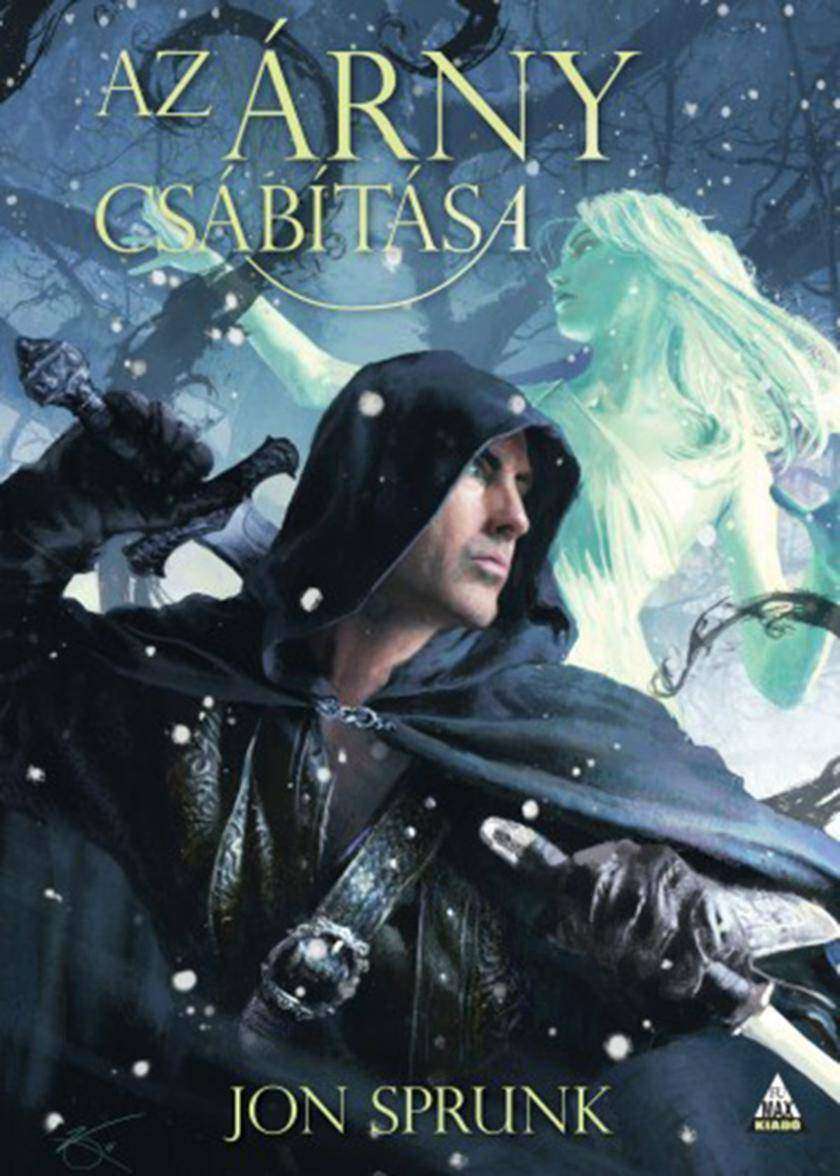
Az árny csábítása
¥43.41
Karinthy legismertebb, legnépszer?bb m?ve mindmáig az ?gy írtok ti. Ez a m? hozta meg számára az ismertséget, ezzel a k?nyvével aratta els? igazi, nagy sikerét. A kávéházi játékokból, nemzedéktársainak kigúnyolásából alakult karikatúrasorozat id?vel tudatos enciklopédiává b?vült, s nemcsak a magyar szerz?k arcképcsarnoka teljesedett ki, hanem világirodalmi és m?faji tematikával is gazdagodott. Máig ható sikerének titka, hogy Karinthy a célba vett írói egyéniség egész karakterét, az alkotói modor és modorosság torzképét rajzolta meg. K?tetünk a Még mindig így írtok ti méltán híres gy?jteményén túl a korabeli lapokban megjelent k?zlések legjobb gúnyrajzait is tartalmazza.

Poems of William Blake: "A Selection of Blake's Poems"
¥19.05
The Dark House was written in the year 1922 by Ida Alexa Ross Wylie. This book is one of the most popular novels of Ida Alexa Ross Wylie, and has been translated into several other languages around the world.This book is published by Booklassic which brings young readers closer to classic literature globally.
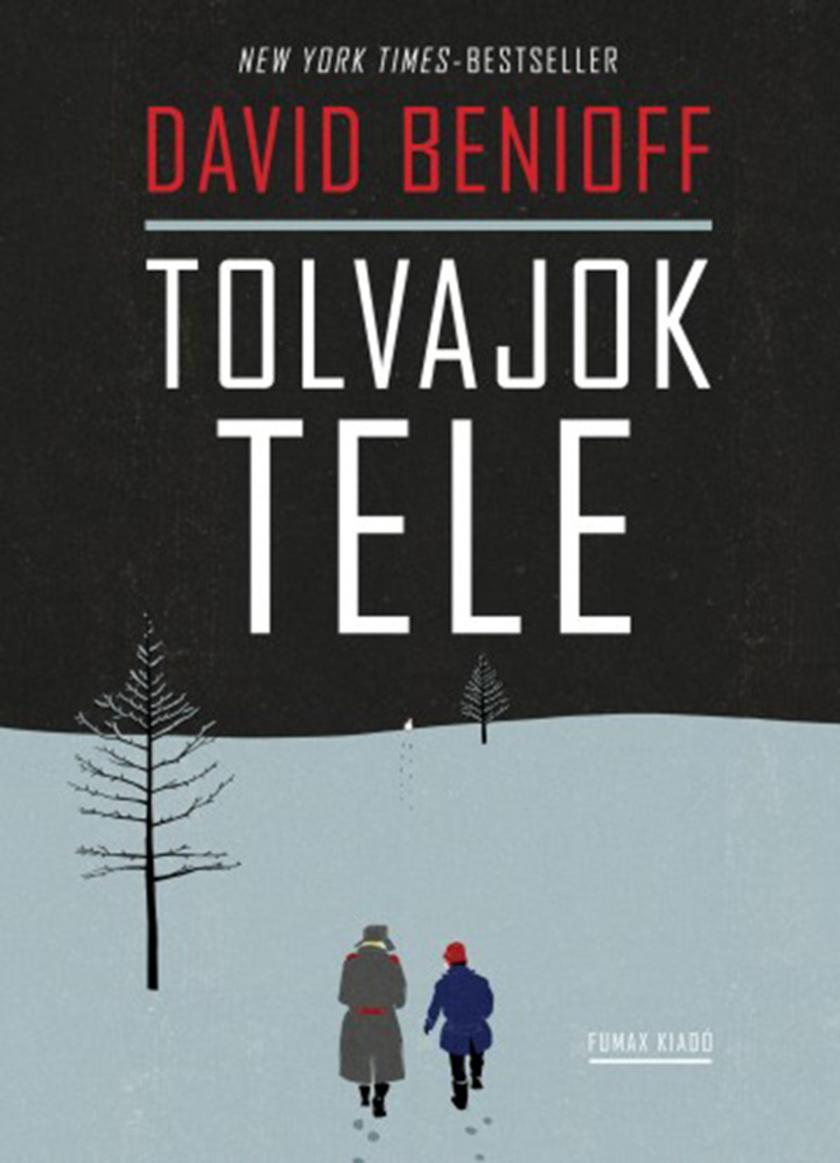
Tolvajok tele
¥57.96
Az Emberi Színjáték egyik legérdekesebb, legnépszer?bb regénye, – mely a kurtizánok nyomorán és csillogó világán kívül bevezet a párizsi szalonokba, a m?vész-életbe, a b?n alvilágába és a b?rt?n?kbe is új színeváltozásában mutatja meg Jaques Collint a volt gályarabot – a felszabadulás óta els?ízben jelenik meg magyar nyelven. Lányi Viktor magas m?vészet? fordítása híven k?veti a balzaci stílus realizmusát és romantikáját, színességét és szellemességét.
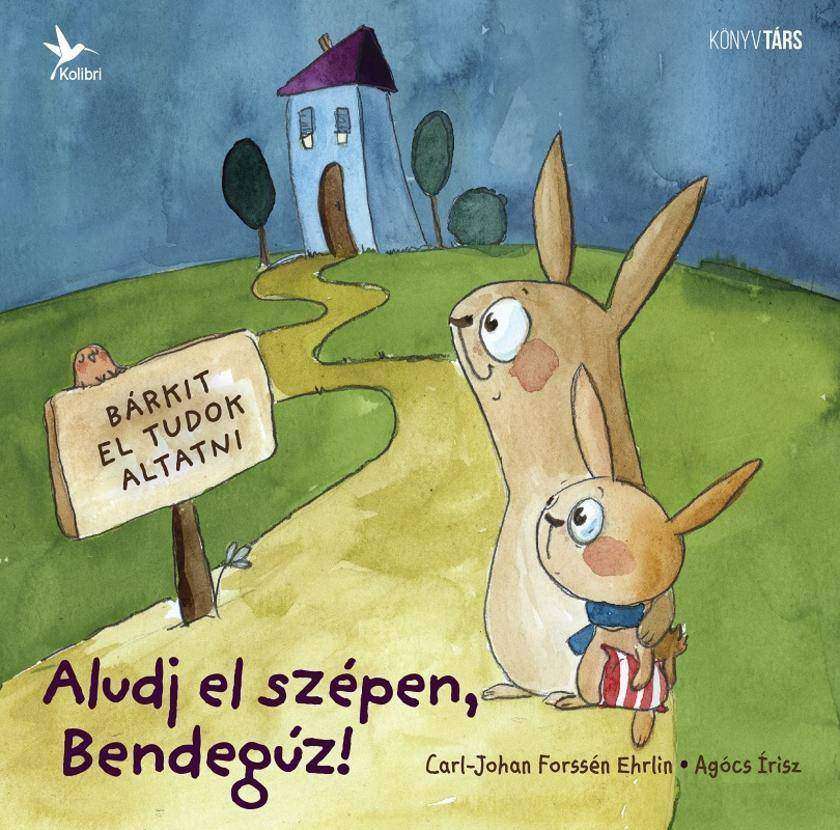
Aludj el szépen, Bendegúz!
¥58.78
t évvel ezeltt Amanda Pierce izgatottan készüldtt az esküvjére fiskolai szerelmével, Jeffrey-vel. Hosszú ideje éltek már együtt akkor. Meglehets jómódban, Amanda apai rksége miatt és nagy izgalommal készültek a nagy napra. Csakhogy Amanda a leánybúcsúja éjszakáján eltnt...Napjaink New Yorkjában Laurie Moran érzi, hogy az eltnt menyasszony esete épp az a megoldatlan ügy, amelynek nyomozása beleillik A gyanú árnyékában cím tévésorozatába. Amanda barátainak és családjának kzremkdésével készülnek feleleveníteni az emlékezetes éjszakát, az esküv helyszínének szánt floridai üdülhelyen, és Laurie reméli, hogy a msor házigazdájával, Alex Buckley-val együtt ugyanolyan sikeresen nyomoznak majd, mint a sorozat els két epizódjában. Miután végighallgatják Amanda hajdani vlegényét, aki idkzben feleségül vette az egyik koszorúslányt, a féltékeny nvért, a két aranyifjú vfélyt és az imádott menyasszonyról szóló pletykákat, lassan rájnnek, hogy mindenkinek megvan a maga elmélete, miért veszett nyoma Amandának. Akárki is áll a lány eltnése mgtt, titokban akarja tartani az igazságot mindhalálig. A gyanú árnyékában sorozat korábbi részei Téged nem lehet elfelejteni és A Hamupipke-gyilkosság címmel jelentek meg.

Gondold újra
¥51.83
Rachel Jenner csak egy pillanatra engedett, csak egy pillanatra fordult el, és ennyi elég volt, hogy nyolc éves fia, Ben elt?nj?n. Vajon mi t?rténhetett azon a szürke, es?s délutánon ott az erd?ben, ahova csak a szokásos kutyasétáltatásra mentek. Végzetes hibát vétett Rachel? Vagy bárkivel megeshetett volna? Az anya legrettenetesebb rémálmát éli át, és még a k?zvélemény is ellene fordul. Nem bízhat meg sem a volt férjében, sem a n?vérében, sem a barátn?jében. Egyedül maradt. Nincs kivel megossza gondolatait, kétségeit, egyre er?s?d? félelmét, vajon hol lehet Ben, mi lehet vele, egyáltalán él-e még. A rend?rség nyomoz, de ott is emberek dolgoznak… Az óra pedig ketyeg… Ebben a regényben semmi és senki nem az, mint aminek hiszed. Akaratlanul is elgondolkodsz: talán te sem? Szívbemarkoló, letehetetlenül izgalmas regény, téged sem hagy majd nyugodni a gondolat, mi lett a kisfiúval. Fej?s ?va

Holló, a hollónak
¥81.34
Rejt? Jen? 1941 táján írhatta életm?vének eme kevéssé ismert darabját. Az Afrikában játszódó kisregény f?h?se egy orvos-kalandor: az abszurdba hajló alaphelyzet, illetve Morbicer és a bennszül?ttek kulturális kül?nbségei számos komikus helyzetet eredményeznek. Az elbeszélés azonban jóval mélyebb üzenetet is hordoz: a humoron túl a hagyományos életrend és a modern civilizáció ütk?zésének tragédiájáról is szól. Mindez nem meglep?, hisz a II. világháború idején Rejt? maga is megtapasztalhatta a 20. század technikai fejl?désének zsákutcáit, a szilárdnak hitt értékek amortizálódását, a morális értékek morzsálódását (fegyverkezés, az államhatalom túlburjánzása, jogfosztottság stb.). A nyersanyag-lel?helyeket hajszoló, szerelmi csalódásában verg?d?, a bennszül?ttek szemében mitikus lénnyé váló Morbicer azonban gyógyít is - teszi ezt annak dacára, hogy nem jár érte k?sz?net. Figuráját Rejt? részben Albert Schweitzerr?l mintázta: a világhír? orvos és humanista afrikai kórházépítésér?l és gyógyító tevékenységér?l szóló k?nyve magyarul is olvasható volt, Rejt? innét vette az alap?tletet. A kisregény 75 évig lappangott az író szétzilált hagyatékában: annak idején vélhet?en az elbeszélésb?l kiolvasható háborúellenesség miatt nem jelenhetett meg. Kül?nleges annyiban is, hogy számos, egymástól markánsan eltér? változatban maradt f?nn, miáltal szinte egyedülálló módon nyílik rálátás a rejt?i sz?vegalakítás dzsungelkonyhájára, az általa teremtett figurák alakulására. A kisregény most el?sz?r jelenik meg ?nálló k?tetben - ráadásul r?gt?n 3 változatban! - Konzílium j?n. Nekünk kell megállapítani, hogy mi baja van a f?n?knek. - De uram, akkor csak róla állapítsuk meg a betegség okát. Rólam az egész világ tudja, hogy még sohasem loptam. - Bejártam az egész világot, és mindenütt tisztában vannak azzal, hogy te vagy a legnagyobb tolvaj. - Uram, te nemcsak rossz szív? vagy, hanem okos is, de most megtévesztett az egész világ. Kül?nben sem értem, hogy egy konzíliumon miért kell az én betegségeimr?l beszélni, hála Balongának, nem fáj semmim, tehát nem fontos, hogy loptam-e. Ha reméljük, r?videsen meghalsz, ezt a konzílium nev? gyógyítást én nem fogom csinálni. - Te is orvos vagy, tehát tudnod kell szintén, hogy vannak ragályos betegségek, ami azt jelenti, hogyha az egyik ember lop, akkor a másiknak sokszor olyan lesz a gyomra, mint a nadrág. - Vagy a b?r lábszárvéd?. Ezzel tisztában vagyok. De itt senki se beteg, csak a f?n?k. - Mi, orvosok tudjuk jól, hiszen magunk k?z?tt vagyunk, T?kász: hogy vannak úgynevezett bacilusgazdák, ez annyit jelent, hogy valaki lop, nem lesz semmi baja, és egy másiknak a k?zelében olyan lesz a gyomra, mint a b?r lábszárvéd?. Ezért te mint a t?rzs varázslója elmondod, hogy kit?l és mit loptatok, addig nem tudom meggyógyítani a f?n?k?t, mert gondolhatod, hogy más betegség lesz, ha valaki egy négert?l ellopja a halászózsákját, vagy egy misszionáriustól a hosszú cs?vet, amin keresztül befolynak a távoli fák és hegyek, egészen az ember szemébe. Vagy más betegsége lesz valakinek, akit megrúgok, mert elvitte házam el?l a f?lf?z?tt szárított húst...
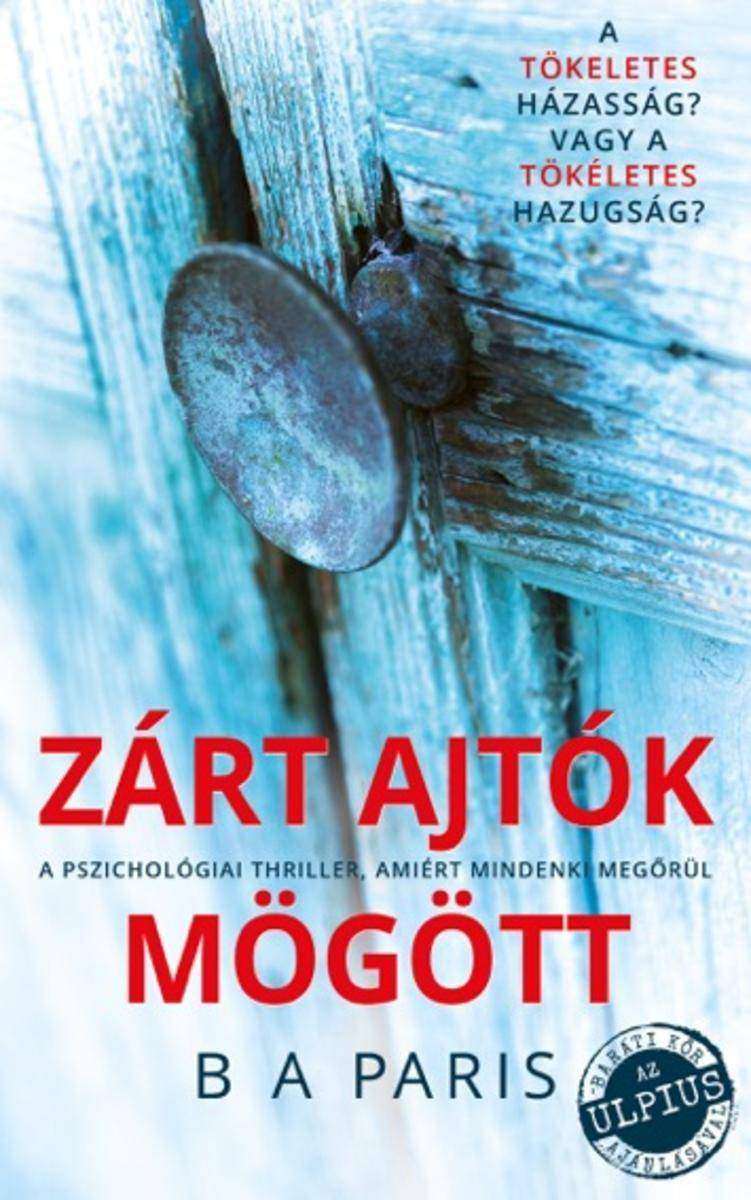
Zárt ajtók m?g?tt
¥119.27
jvári Hanna a tinik megszokott életét élte egészen egy évvel ezelttig, egy családi tragédia azonban mindent megváltoztatott. Most apukájával kettesben tlti a hétkznapokat, és rég nem a korosztályának átlagos problémái foglalkoztatják. Miután átveszi a tizenegyedikes bizonyítványát, az évzáró után váratlan felkérést kap az igazgatótól: részt vehet egy iskolai versenyen, ahol kiváló matekosként fleg a logikai feladatok megoldásában számítanak rá. Hanna krnyezete ragaszkodik hozzá, hogy elmenjen a megmérettetésre, így a Szirtes Gimnázium négyfs csapata elindul az Iskolák Országos Versenyén.
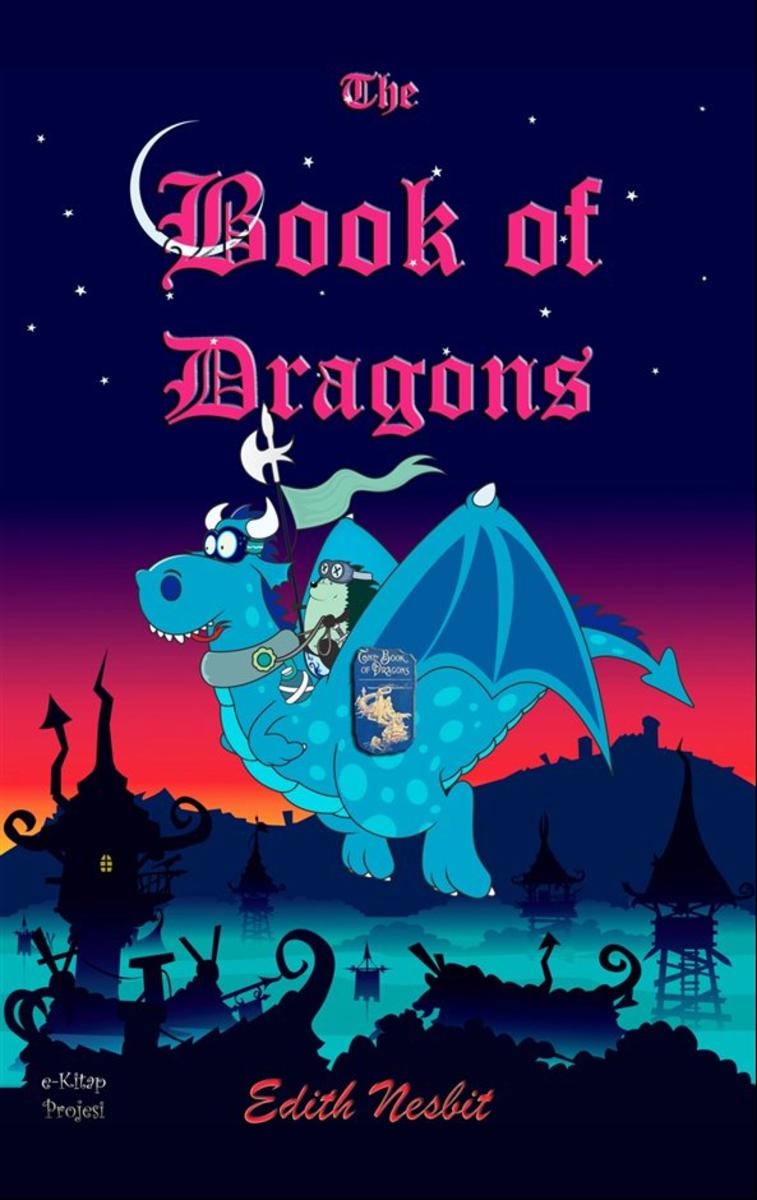
The Book of Dragons
¥18.74
Creep, Shadow! was written in the year 1934 by Abraham Merritt. This book is one of the most popular novels of Abraham Merritt, and has been translated into several other languages around the world.This book is published by Booklassic which brings young readers closer to classic literature globally.

N?i rafinéria
¥57.31
Miután John és Brooke magára maradt, városról városra stoppolva vadásznak Amerika k?zép-nyugati részén a még megmaradt utolsó Sorvadtakra. Csakhogy a Sorvadtak is vadásznak rájuk, ráadásul az FBI is a nyomukban van. Minden újabb várossal, minden újabb kamionos pihen?vel, minden újabb autópályával egyre k?zelebb kerülnek egy olyan kegyetlen gyilkoshoz, akire John semmilyen jól bejáratott analitikus és el?rejelz? módszere nem alkalmazható. K?zben Brooke meghasadt pszichéje az elméjén osztozó t?bb százezer halott személyiségt?l túlterhelve tántorog az ?sszeomlás peremén. Hol birtokában van szellemi képességeinek, hol nem, és minden nap új nevek, gondolatok és emlékek t?rnek felszínre benne, mígnem felbukkan az a személyiség, akire John végképp nem számított: Senki utolsó áldozata, csapdába esve John egyetlen megmaradt barátjának testében.
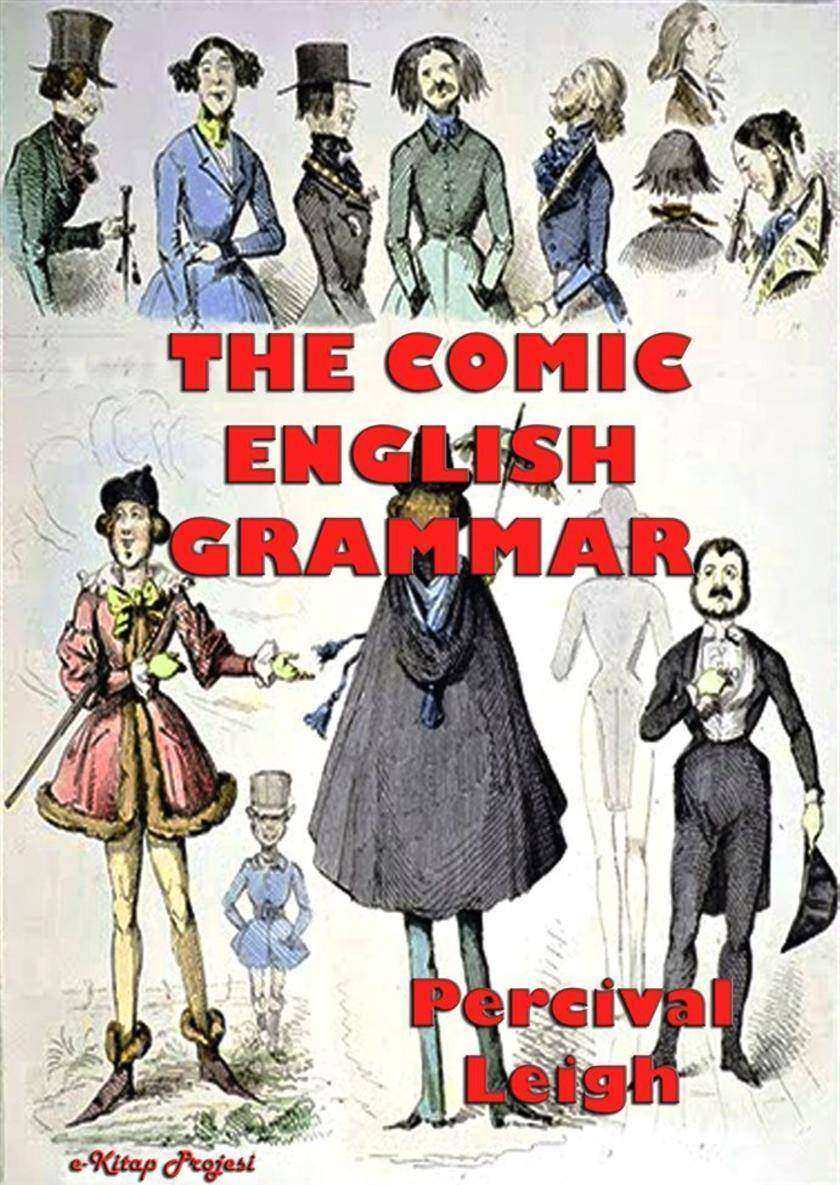
The Comic English Grammar
¥18.74
Children, as well as their interested parents, will eagerly welcome this beautiful edition of the one great nursery classic, just as a worthy edition of Shakespeare is welcomed by discriminating adult readers.? But some may ask what there is in these simple melodies, attributed to Mother Goose, which gives them so secure and beloved a place in the home, the school and the public library. Is it the humor, the action, the rhythm, or the mystery of the theme which appeals so strongly to critical little minds in each generation of childhood, and even to adult minds so fortunate as to have retained some of the refreshing naiveté of early years?? It is useless to try to explain the charm of these nonsense melodies. The children themselves do not know why they love them. No mother can tell us the magic of the spell which seems to be cast over her restless baby as she croons to it a Mother Goose lullaby. No primary teacher quite understands why the mere repetition or singing of a Mother Goose jingle will transform her listless, inattentive class into one all eagerness and attention. But mother and teacher agree that the best of these verses have an even more potent influence than that of innocently diverting and entertaining the child. The healthy moral, so subtly suggested in many of the rhymes, is unconsciously absorbed by the child's receptive mind, helping him to make his own distinction between right and wrong, bravery and cowardice, generosity and selfishness.?From a literary standpoint, also, these rhymes have proved of real value in creating a taste for the truly musical in poetry and song. They train the ear and stir the imagination of the child as no other verses do. Many famous poets and writers trace their first inspiration, and love for things literary, back to the nursery songs and fairy tales of their childhood.??Teachers well know that children who have reveled in these rhymes and stories, at the time of their strongest appeal, step naturally and appreciatively into the great fields of good literature which are beyond.?Knowing these things to be true, we do not hesitate to place this venerable classic on the shelf beside our Shakespeare, and to send our children there for delight and inspiration. They will understand Shakespeare the better for having known and loved Mother Goose.?But what about the personality of this classic writer? Was she really Mistress Elizabeth Goose who is said to have lived in Boston about two hundred years ago, and who crooned her nonsense jingles to a large and happy family of grandchildren? We are told that their father, Thomas Fleet, who was a printer by trade, thought to turn an honest penny with his mother-in-law's popular verses, so he published them in a small volume under the title of "Songs for the Nursery: or, Mother Goose's Melodies." A goose with a very long neck and a wide-open mouth flew across the title page, at least so the story goes. But we have to believe that it is only a story, for no copy of the book can be found, and nothing but tradition identifies Elizabeth Goose, the Boston grandmother, with the famous rhymester.

A lánykérés
¥62.70
A híres írón?, Crystal Montague jó ideje alkotói válsággal küzd, s kiadója hiába várja t?le a k?vetkez? bestsellert. Férjével ugyancsak megromlott a viszonya egy argentin szépfiú megjelenése óta.?gy visszavonul spanyolországi villájába új ihlet reményében, de – legutóbbi k?nyvének címéhez ill?en – a h?ség ellenére társasága mégis dermeszt?nek érzi a hangulatot a napos Trafalgar-fok k?zelében. Végül valóban fagyossá válik a légk?r, miután születésnapi partiján férjének rejtélyes módon nyoma vész, s mindenki szemében az írón? az els? számú gyanúsított.Húga balsejtelme tehát beigazolódni látszik, mivel korábban az ismert magánnyomozó, Anthony Noir segítségét kérte. A polinéziai detektív számára t?bbek k?z?tt az írón? regényének jegyzete jelent majd segítséget a rendkívüli ügy megoldásában.

Jutalomjáték: ?tra kelsz,ha szólt a múlt?
¥51.42
me, A gyanú árnyékában sorozat negyedik epizódja a New York Times bestseller szerzje, a “feszültségteremtés királynje”, Mary Higgins Clark és a napjainkban nálló íróként is sikeres Alafair Burke tollából! A televíziós producer, Laurie Moran ezúttal egy olyan nnek próbál segíteni, akit szerinte jogtalanul ítéltek el. Tizent éve annak, hogy Casey Cartert bebrtnzték a vlegénye meggyilkolásáért, ám a magát mindvégig ártatlannak valló n elszántan küzd azért, hogy tisztára mossa a nevét. gy látja, ártatlansága bebizonyításának egyetlen módja, ha a megtrtént eseteket feldolgozó sorozat, A gyanú árnyékában kvetkez epizódja az trténetét meséli el… A msor producere, Laurie Moran hisz Casey ártatlanságában, és szeretne neki segíteni. De mivel társa, Alex Buckley szünetelteti a televíziós tevékenységét, a sorozat új házigazdát kap a Harvardon végzett, nagymen jogász, Ryan Nichols személyében. A nagykép Ryan átveszi a msor irányítását, st, megpróbálja lebeszélni Laurie-t Casey ügyérl, mivel biztos a n bnsségében. Laurie-nak egyszerre kell megküzdenie az ntelt, egocentrikus újonccal, egy knyrtelen pletykarovat-szerzvel és Casey rossz hírnevével, hogy végleg bebizonyítsa Casey ártatlanságát. Már, ha valóban nem kvette el a gyilkosságot… A gyanú árnyékában sorozat korábbi részei Téged nem lehet elfelejteni, A Hamupipke-gyilkosság és Míg a halál el nem választ címmel jelentek meg.

Bádogember
¥56.57
Kül?n?s világokba vezet minket ez a k?nyv. Világokba – mondom –, hiszen sokan talán csak tudat alatt érezzük, de megfogalmazni nem tudjuk, hogy immár nem egyetlen világban élünk, hanem legalább kett?ben, az egyik, amelyet a Biblia szerint az ?r teremtett, a másik, amelyet az ember hozott létre a maga szeretetével és kegyetlenségével. E kett? vagy t?bb(?) világ k?z?tt vajon hol vannak az átjárók? Ha nincs vezet?nk nem érzékeljük ?ket, s éppen ebb?l fakad Vasi Szabó János alkotói módszere. A sokat megélt és tapasztalt író vezet minket e bonyolult élet útveszt?iben. Mik?zben ?rzi a prózaírás hagyományait, meg is újítja azokat. ?Mágikus realizmus”. Vasi Szabó János alkotó stílusát jel?li e kifejezés, nem az én találmányom, hanem egyik kritikusáé, de magam is találónak érzem. Van azonban egy nagyon fontos jellemz?je is: még a legdrámaibb, legtragikusabb t?rténetnek is van feloldása, j?v?t sejtet? katarzisa. Az igazi, népéért felel?sséget érz? író használni akar. E k?nyv haszna is kétségtelen, ezért bízvást ajánlhatom az olvasók szíves figyelmébe.Varga Tibor
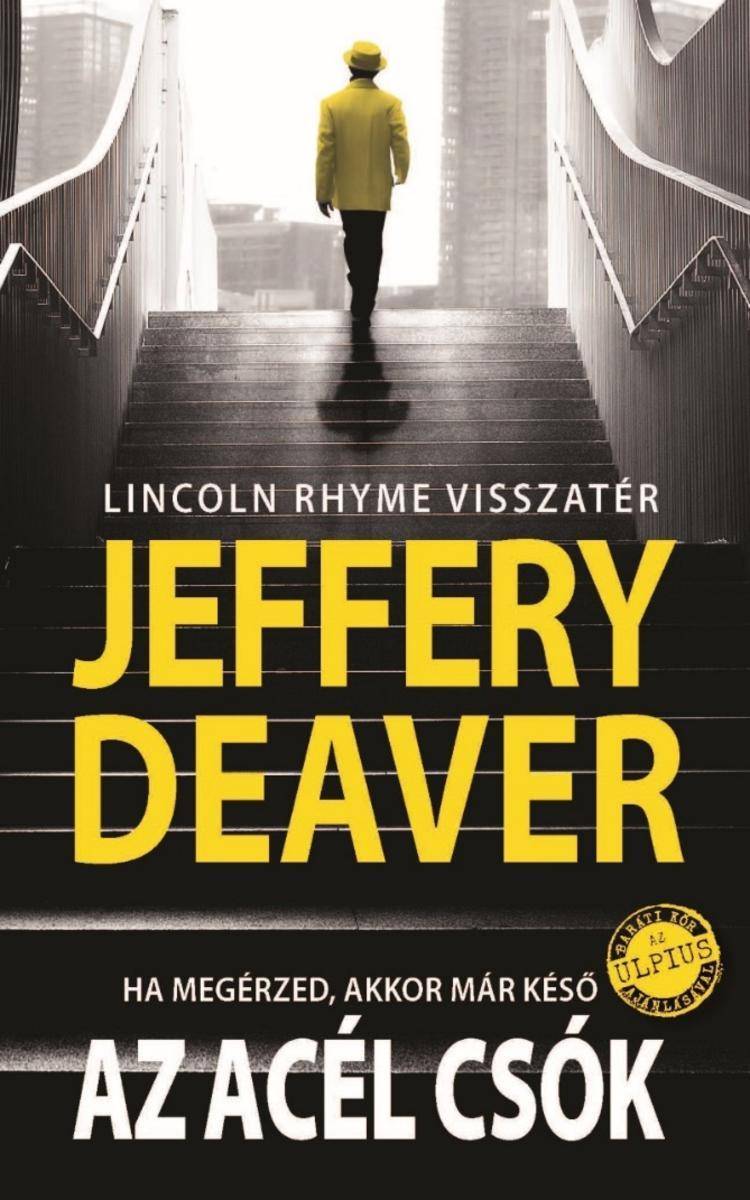
Az acél csók
¥119.27
1609 októberében?Fabricius Flóra, egy pozsonyi orvos lánya?Báthori Erzsébet ?udvarába érkezik, hogy megkeresse elt?nt n?vérét. Ha tudta volna, mi vár rá, talán útnak sem indul. Hamarosan megtanulja, semmi sem az, aminek látszik, és semmi sem biztos, csak a halál. Ki mozgatja vajon a szálakat? Ki az, aki befolyásolja az eseményeket, és a gyilkolástól sem riad vissza?? Minden erejére szüksége van, hogy legy?zze az akadályokat és kibogozza a s?tét titkot, melyet a csejtei vár falai rejtenek.? Egyetlen emberre számíthat csupán, az Itáliából érkezett, kétes jellem?, mégis rendkívül vonzó férfira, akir?l azt sem tudja pontosan, hogy kicsoda, és azt sem, miért segít neki.? R.?Kelényi Angelika, Terézanyu-díjas írón??17. század elején játszódóregénye kalandos, izgalmas, és vérfagyasztó t?rténetet mesél el, korh? t?rténelmi háttérbe helyezve.? Ahogy azt már megszokhattuk t?le, írása nem nélkül?zi a romantikát és a politikai cselsz?vést sem.?
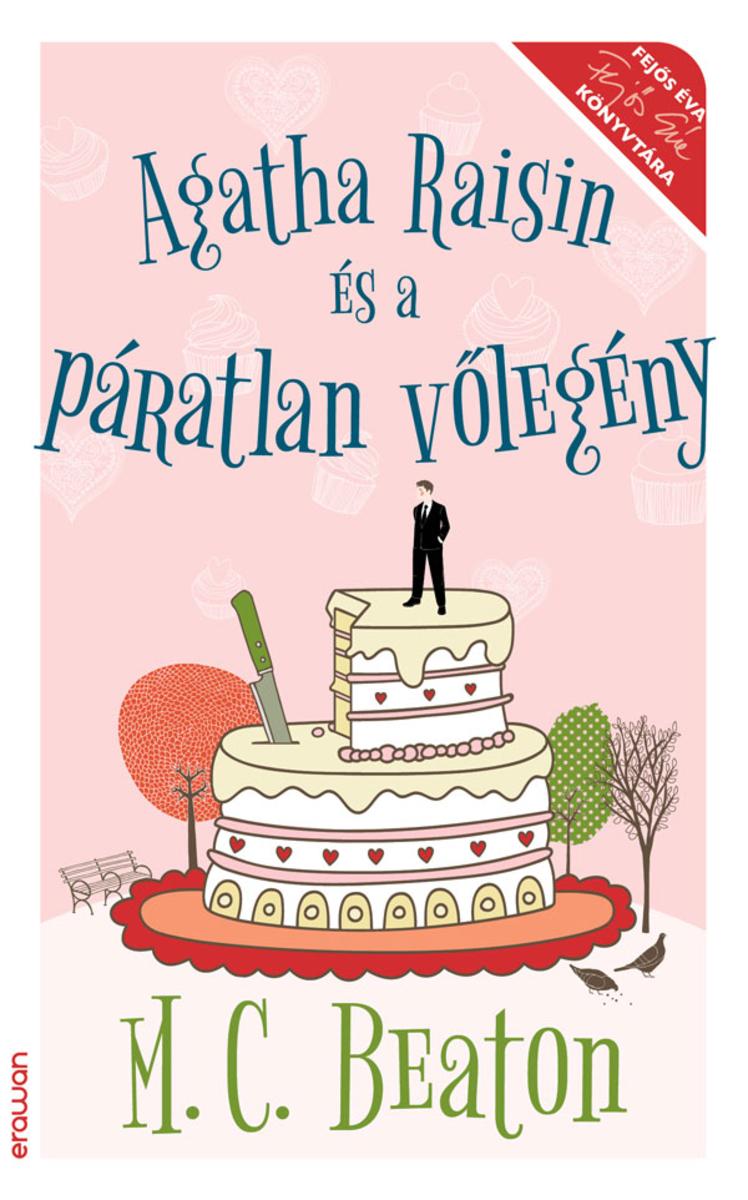
Agatha Raisin és a páratlan v?legény
¥80.36
Egy oknyomozó újságíró az egyik vállalat ügyei után járva ráakad egy vidéki temet?re, ahol ?tven évvel azel?tt t?bb halottat is eltemettek ugyanazon a napon. Kutatása során kapcsolatot talál a vizsgált vállalat tulajdonosa és a temet?ben elhunytak egyike k?z?tt. Ezzel egy politikai t?meggyilkosság nyomára jut, amelynek néhány túlél?jét és tanúját is megtalálja. Az ügy nyilvánosságra hozatala a nagyvállalat érdekeit súlyosan sérti, ezért vezet?je radikális lépésekre szánja el magát – a gyilkosságtól sem riad vissza...K?zben megjelenik egy amerikai befektet?, akit elriaszthat a rossz hírbe kevert magyar vállalat. Személyes kapcsolatok romolnak meg, kemény harc folyik a vállalat tulajdonlásáért. A küzdelemben a keleti és a nyugati t?keérdekeltségek csapnak ?ssze.

Secret of the Earth
¥28.04
Tolstoy incorporated extensive historical research. He was also influenced by many other novels. A veteran of the Crimean War, Tolstoy was quite critical of standard history, especially the standards of military history, in War and Peace. Tolstoy read all the standard histories available in Russian and French about the Napoleonic Wars and combined more traditional historical writing with the novel form. He explains at the start of the novel's third volume his own views on how history ought to be written. His aim was to blur the line between fiction and history, in order to get closer to the truth, as he states in Volume II. The novel is set 60 years earlier than the time at which Tolstoy wrote it, "in the days of our grandfathers", as he puts it. He had spoken with people who had lived through war during the French invasion of Russia in 1812, so the book is also, in part, accurate ethnography fictionalized. He read letters, journals, autobiographical and biographical materials pertaining to Napoleon and the dozens of other historical characters in the novel. There are approximately 160 real persons named or referred to in War and Peace. Plot summary:War and Peace has a large cast of characters, the majority of whom are introduced in the first book. Some are actual historical figures, such as Napoleon and Alexander I. While the scope of the novel is vast, it is centered around five aristocratic families. The plot and the interactions of the characters take place in the era surrounding the 1812 French invasion of Russia during the Napoleonic wars.Book/Volume OneThe novel begins in July 1805 in Saint Petersburg, at a soiree given by Anna Pavlovna Scherer—the maid of honour and confidante to the queen mother Maria Feodorovna. Many of the main characters and aristocratic families in the novel are introduced as they enter Anna Pavlovna's salon. Pierre (Pyotr Kirilovich) Bezukhov is the illegitimate son of a wealthy count, an elderly man who is dying after a series of strokes. Pierre is about to become embroiled in a struggle for his inheritance. Educated abroad at his father's expense following his mother's death, Pierre is essentially kindhearted, but socially awkward, and owing in part to his open, finds it difficult to integrate into Petersburg society. It is known to everyone at soiree that Pierre is his father's favorite of all the old count’s illegitimate children. Also attending the soireé is Pierre's friend, the intelligent and sardonic Prince Andrei Nikolayevich Bolkonsky, husband of Lise, the charming society favourite. Finding Petersburg society unctuous and disillusioned with married life after discovering his wife is empty and superficial, Prince Andrei makes the fateful choice to be an aide-de-camp to Prince Mikhail Ilarionovich Kutuzov in the coming war against Napoleon. The plot moves to Moscow, Russia's ancient city and former capital, contrasting its provincial, more Russian ways to the highly mannered society of Petersburg. The Rostov family are introduced. Count Ilya Andreyevich Rostov has four adolescent children. Thirteen-year-old Natasha (Natalia Ilyinichna) believes herself in love with Boris Drubetskoy, a disciplined young man who is about to join the army as an officer. Twenty-year-old Nikolai Ilyich pledges his love to Sonya (Sofia Alexandrovna), The eldest child of the Rostov family, Vera Ilyinichna, is cold and somewhat haughty but has a good prospective marriage in a Russian-German officer, Adolf Karlovich Berg. Petya (Pyotr Ilyich) is nine and the youngest of the Rostov family; like his brother, he is impetuous and eager to join the army when of age. The heads of the family, are an affectionate couple but forever worried about their disordered finances. At Bald Hills, the Bolkonskys' country estate, Prince Andrei departs for war and leaves his terrified, pregnant wife Lise with his eccentric father Prince Nikolai Andreyevich Bolkonsky and devoutly religious sister Maria Nikolayevna Bolkonskaya.
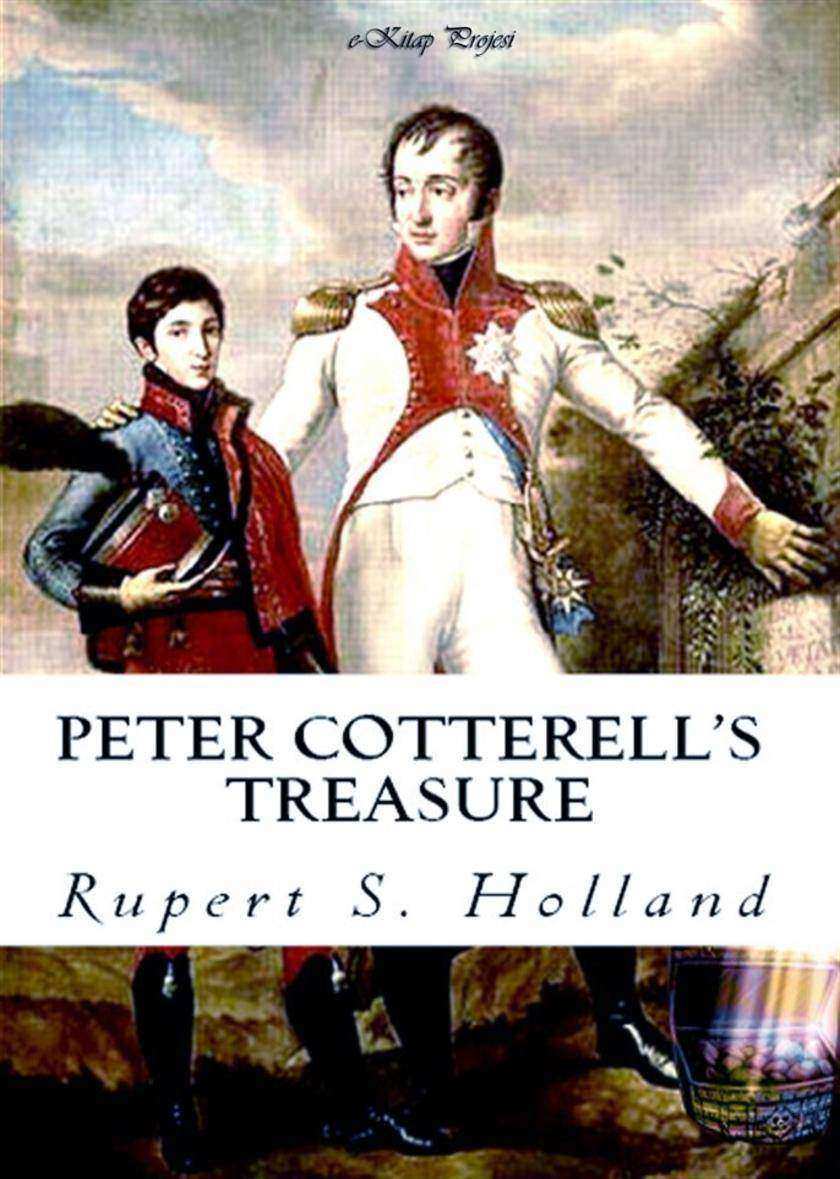
Peter Cotterell's Treasure
¥13.98
The Mole had been working very hard all the morning, spring-cleaning his little home. First with brooms, then with dusters; then on ladders and steps and chairs, with a brush and a pail of whitewash; till he had dust in his throat and eyes, and splashes of whitewash all over his black fur, and an aching back and weary arms. Spring was moving in the air above and in the earth below and around him, penetrating even his dark and lowly little house with its spirit of divine discontent and longing. It was small wonder, then, that he suddenly flung down his brush on the floor, said 'Bother!' and 'O blow!' and also 'Hang spring-cleaning!' and bolted out of the house without even waiting to put on his coat. Something up above was calling him imperiously, and he made for the steep little tunnel which answered in his case to the gavelled carriage-drive owned by animals whose residences are nearer to the sun and air. So he scraped and scratched and scrabbled and scrooged and then he scrooged again and scrabbled and scratched and scraped, working busily with his little paws and muttering to himself, 'Up we go! Up we go!' till at last, pop! his snout came out into the sunlight, and he found himself rolling in the warm grass of a great meadow. 'This is fine!' he said to himself. 'This is better than whitewashing!' The sunshine struck hot on his fur, soft breezes caressed his heated brow, and after the seclusion of the cellarage he had lived in so long the carol of happy birds fell on his dulled hearing almost like a shout. Jumping off all his four legs at once, in the joy of living and the delight of spring without its cleaning, he pursued his way across the meadow till he reached the hedge on the further side. 'Hold up!' said an elderly rabbit at the gap. 'Sixpence for the privilege of passing by the private road!' He was bowled over in an instant by the impatient and contemptuous Mole, who trotted along the side of the hedge chaffing the other rabbits as they peeped hurriedly from their holes to see what the row was about. 'Onion-sauce! Onion-sauce!' he remarked jeeringly, and was gone before they could think of a thoroughly satisfactory reply. Then they all started grumbling at each other. 'How STUPID you are! Why didn't you tell him——' 'Well, why didn't YOU say——' 'You might have reminded him——' and so on, in the usual way; but, of course, it was then much too late, as is always the case. It all seemed too good to be true. Hither and thither through the meadows he rambled busily, along the hedgerows, across the copses, finding everywhere birds building, flowers budding, leaves thrusting—everything happy, and progressive, and occupied. And instead of having an uneasy conscience pricking him and whispering 'whitewash!' he somehow could only feel how jolly it was to be the only idle dog among all these busy citizens. After all, the best part of a holiday is perhaps not so much to be resting yourself, as to see all the other fellows busy working.
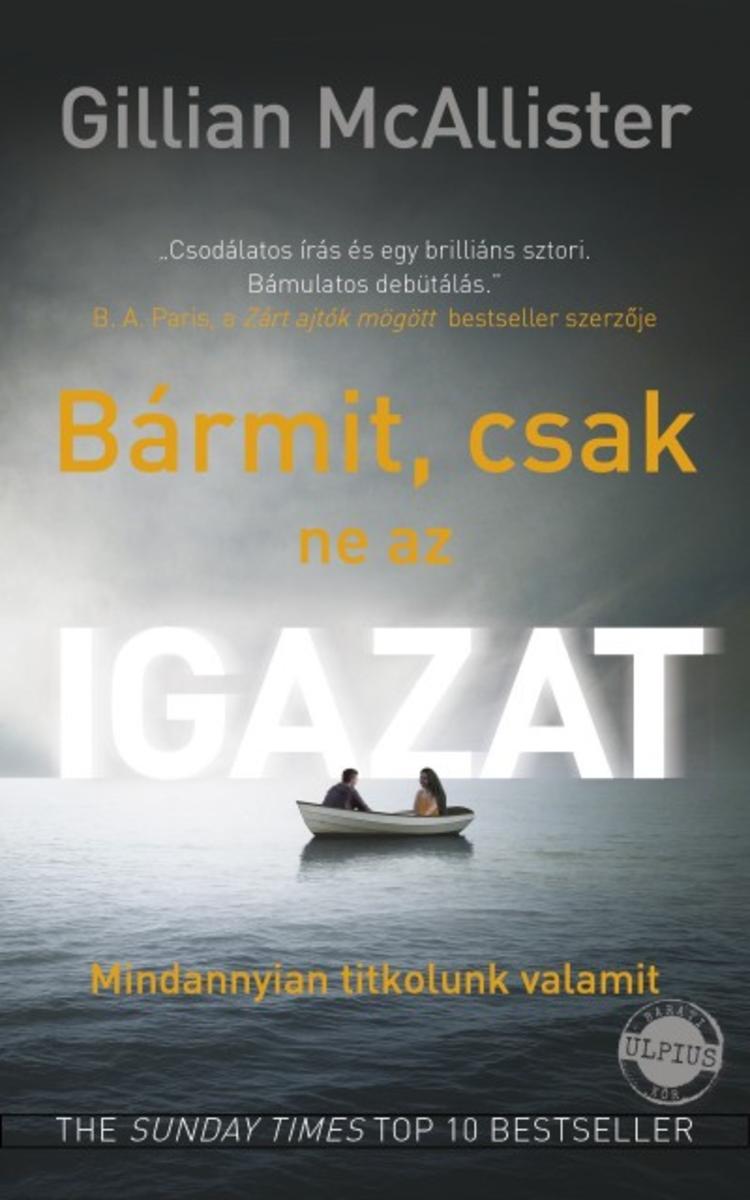
Bármit, csak ne az igazat
¥119.27
***T?bb, mint 70 millió eladott k?nyv írója*** Hét nagyon kül?nb?z? n? testvéri sz?vetségbe t?m?rül az ?r?k barátság jegyében, hogy orvosolják a jelent is beárnyékoló múltbeli sérelmeiket, és visszacsempésszék az ?r?m?t, a nevetést az életükbe. Myra Rutledge barátn?ivel, gy?ny?r? virginiai otthonukban, családias hangulatban, rózsaszín tulipánok k?z?tt, rákfalatkákkal és jeges teával kényeztetik magukat a hétk?znapokban.A barátn?k nekilátnak küldetésüknek, hogy kidolgozanak egy édes bosszút egy társukért.?Julia Websterért, akinek férje, az Egyesült ?llamok szenátora korábban felesége kifinomultságát és eleganciáját használta a karrierje építéséhez. Mindek?zben minden pillanatban visszaélt a n? bizalmával és romba d?nt?tte az álmait. Legnagyobb politikai gy?zelme estéjén azonban komoly lecke vár rá. A szenátor nem sejti, hogy mekkora hiba volt annak a n?nek ártani, aki mellett hat másik sorakozik fel, hogy elégtételt vegyenek a piszkos húzásokért.?Egy kül?n?s sz?vetség hihetetlenül izgalmas kalandjai bontakoznak ki: hét bátor n?, akit az igazságszolgáltatás semmibe vett, saját kezébe veszi a bíráskodást. Fern Michaels amerikai írón?, k?zel 150 bestseller sikerk?nyv szerz?je, 70 milliós eladott példányszámmal a háta m?g?tt. Romantikus regényei, krimijei világszerte népszer?ek, rendszeresen vezetik a sikerlistákat, a magyar olvasók számára sem ismeretlen.
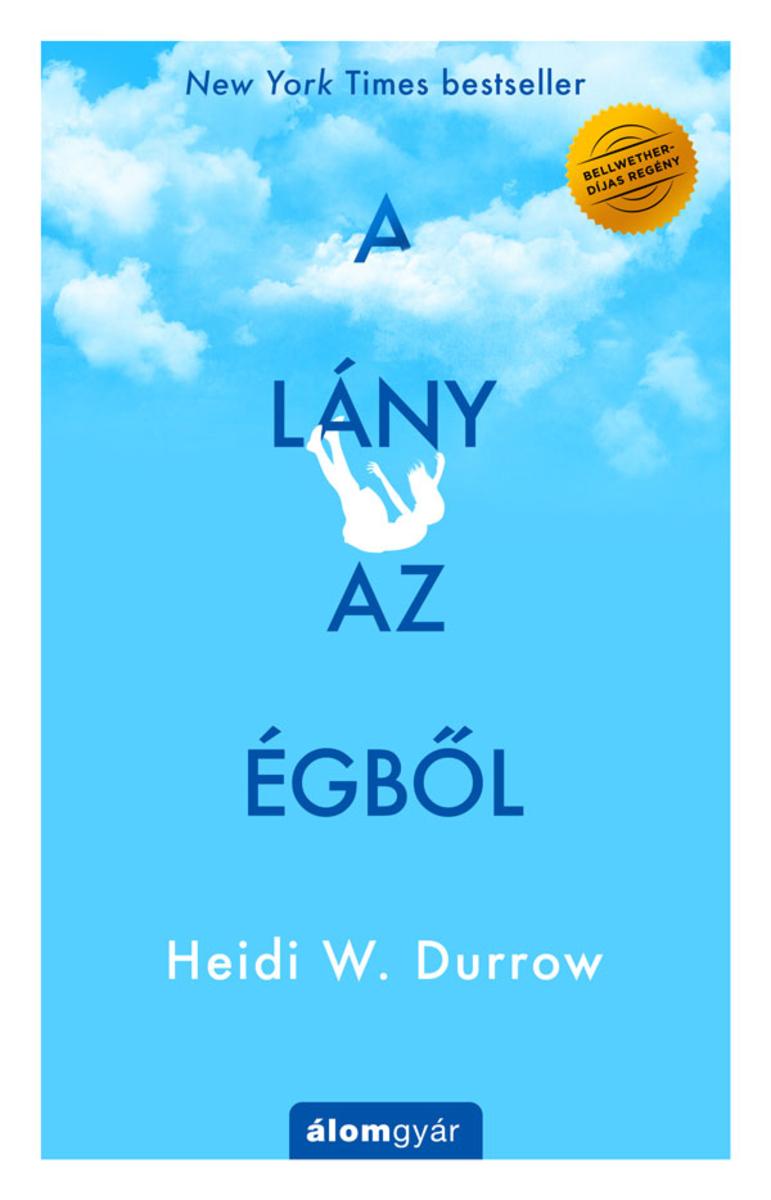
A lány az égb?l
¥57.55
Kóródi Szonját, egy kereskedelmi tévécsatorna kommunikációs szakemberét fejvadászcég k?zvetíti egy viszonylag új, de nagyra t?r? k?rnyezetvédelmi céghez. A munka nehezebb, de izgalmasabb, a fizetés jobb, a kilátások mesések… vagy mégsem? Szonja szép lassan ráj?n, hogy el?dje és egy másik kollégája titokzatos k?rülmények vesztette életét, és a szálak munkahelyére, a GreenDay óbudai bázisára, és onnan nagyon-nagyon magasra vezetnek… Míg Szonja az informatikus párja segítségével egy kis magánnyomozásba kezd, egy másik lány, a családi okokból otthonban él?, tizen?téves Tina egy rosszul végz?d? buliban vesz részt. Azonban az intézetbe már nem megy vissza a buli után, hanem bek?lt?zik egy elhagyatott hétvégi házba Szigetmonostoron. ?m amikor megtudja, hogy egyetlen barátn?je egy új dizájner drog áldozatává vált, bosszút esküszik, és a díler nyomába ered. A lány és a fiatal n? t?rténete eleinte nem keresztezi egymást, de mindketten elszántan küzdenek az igazukért, és mindkettejüknek menekülniük kell. Vajon elég bátrak-e ahhoz, hogy továbblépjenek és bevállalják az igazságot? Fej?s ?va új regénye az ?ton hozzád és a November lányában megszokott izgalmakat nyújtja az olvasóknak, és hatalmas tempóban száguldunk mi is Budapestr?l Sydney felé, ahol nem csak a szerelem vár a h?sn?re, Szonjára…
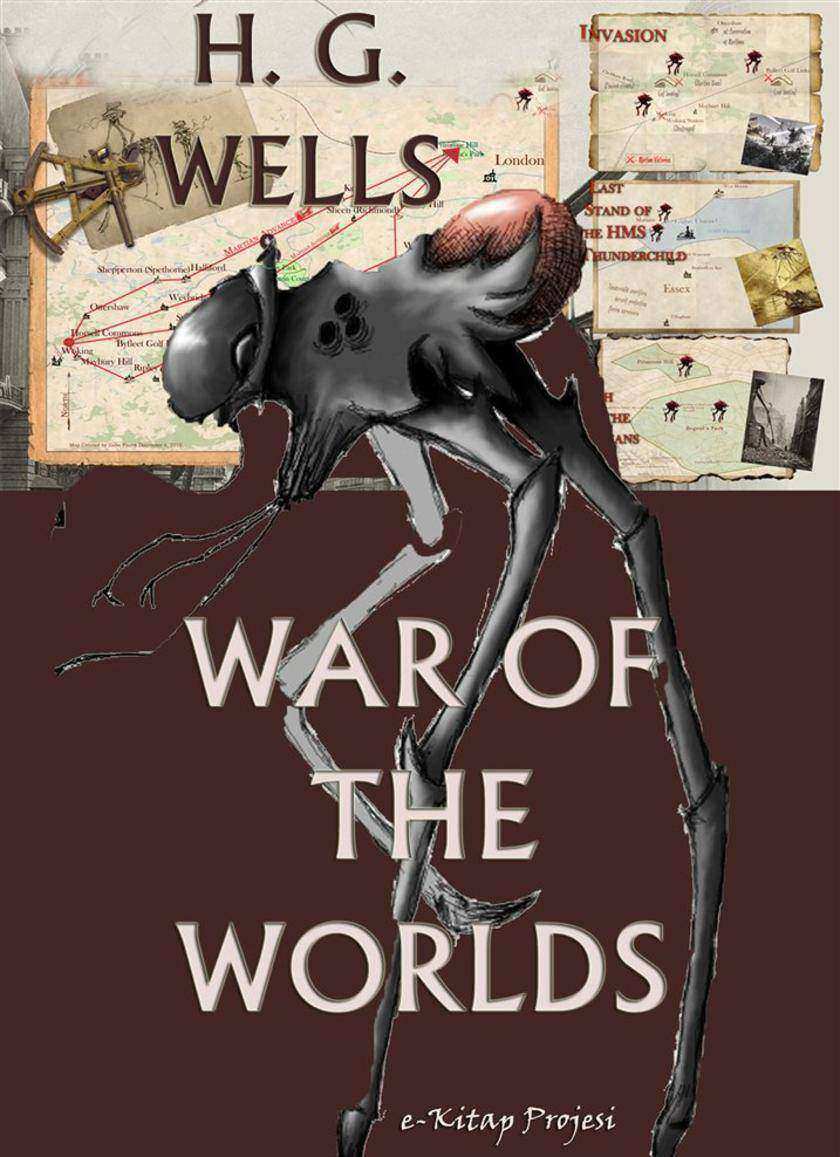
War of the Worlds
¥23.30
The Wizard was written in the year 1896 by Henry Rider Haggard. This book is one of the most popular novels of Henry Rider Haggard, and has been translated into several other languages around the world.This book is published by Booklassic which brings young readers closer to classic literature globally.




 购物车
购物车 个人中心
个人中心



